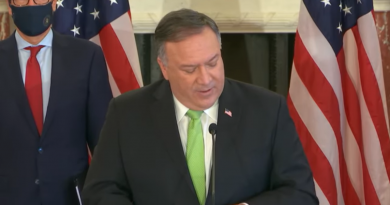EU Withdrawal Bill Enters Debate Stage
By Tien Phan
Staff Writer
On September 12, the U.K. parliament passed the first and second reading of the EU Withdrawal Bill, also known as the Great Repeal Bill, according to France24. The bill, which won by 326 to 290 votes after approximately thirteen hours of debate, will now go to more debate in the Parliament. The main purpose of this bill is to adopt EU laws into U.K. law to ensure a smooth transition after the historical Brexit referendum in October 2016.
Although the bill passed its first step in becoming a law, there are still obstacles ahead that are blocking its way. The New Stateman said, “in the words of the House of Commons library, the government would be able to ‘adapt legislation’ for the purpose of functioning effectively post-Brexit.” That is also said to be the reason why the opposing party, the Labour Party, is criticizing the bill, which would subsequently harm people’s Labour rights and reduce protection in their work environment. Those in favor of Brexit deny this claim by stating that “without [the bill], we would be approaching a cliff-edge of uncertainty which is not in the interest of anyone.” Also, those in favor claim that these proceedings are the most sensible way to deal with a handful of regulations that must be incorporated into U.K. laws.
Furthermore, even though the Labour Party has already made a coalition to trigger Article 50 to exit the EU smoothly, they are now threatening to vote against the bill. The Spectator reports that this can cause trouble for the government due to the longer voting process, with Members of Parliament (MPs) being unhappy with parts of the bill. More importantly, it is said that the Labour Party does not want another party to be formed with a pro-European and pro-single market platform.
The opposing parties are not the only obstacle that the bill has to face. Some experts have said that if the bill passes as a law, major issues will occur for the financial services sector. According to City A.M. “legal uncertainty” might be a reality if this bill passes. After passing both the first and second reading, the bill is now being debated on the floor of the House of Commons. If it succeeds and passes in the House of Commons, the bill will then move on to the House of Lords, made up of unelected peers, under almost the same process. The bill will be debated again and if approved, final changes will be considered by both Houses and become law. It is a long process, not just for the politicians, but also for the people who depend on how the law will affect their lives.


